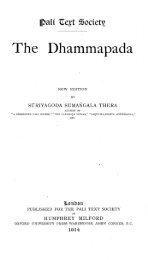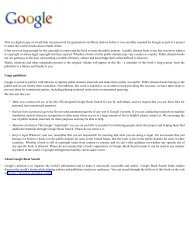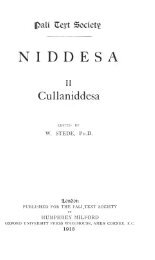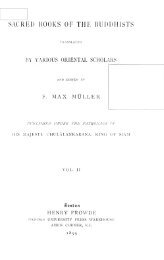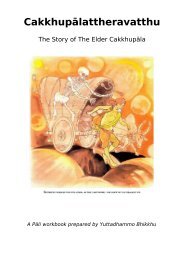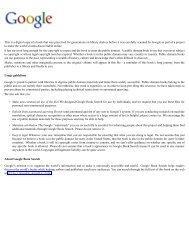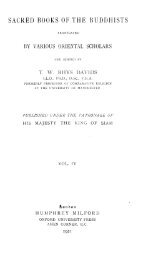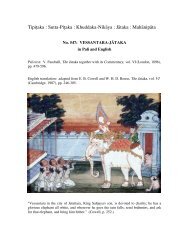Lessons In Practical Buddhism - Sirimangalo.Org
Lessons In Practical Buddhism - Sirimangalo.Org
Lessons In Practical Buddhism - Sirimangalo.Org
You also want an ePaper? Increase the reach of your titles
YUMPU automatically turns print PDFs into web optimized ePapers that Google loves.
eons and 100,000 great eons to become fully enlightened.<br />
A great eon is the time it takes from the big bang until the<br />
end of the universe – the big crunch or whatever the end of<br />
the universe is. 100,000 great eons is the small part of the<br />
time it takes. The large part is the four uncountables. It is<br />
theoretically possible to count the time from the big bang to<br />
the big crunch but an uncountable eon is, by definition,<br />
uncountable; it took the Buddha more than four uncountable<br />
eons to become enlightened.<br />
So here we are, in the time of the Buddha. We missed the<br />
Buddha himself; who knows what we were doing when he<br />
was teaching. Maybe we were drinking or gambling, maybe<br />
we weren’t even humans. Somehow we missed the chance.<br />
All that is left for us now is the Dhamma. This is why we<br />
protect and revere the dhamma as well, because it’s all that<br />
we have left after the Buddha passed away – the dhamma<br />
and the sangha who has passed it on.<br />
The sangha refers those people we ordinarily think of as our<br />
teachers, but actually they are only responsible for passing<br />
on the Buddha’s teachings and to be an example to us in our<br />
practice. They can never replace the Buddha as a teacher,<br />
so it might be easy to become discouraged in this day and<br />
age, thinking we have no teacher. The Buddha, foreseeing<br />
this, taught that the dhamma itself would be our teacher<br />
after he passed away:<br />
“siyā kho panānanda, tumhākaṃ evamassa —<br />
‘atītasatthukaṃ pāvacanaṃ, natthi no satthā’ti. na kho<br />
panetaṃ, ānanda, evaṃ daṭṭhabbaṃ. yo vo, ānanda,<br />
mayā dhammo ca vinayo ca desito paññatto, so vo<br />
mamaccayena satthā.<br />
“It may be, Ananda, that you will think, ‘the teaching has<br />
passed away with the teacher; there is no teacher for us.’<br />
You should not see it thus, Ananda. Whatever dhamma<br />
and discipline (vinaya) has been taught and laid out to<br />
you, that will be your teacher after my passing away.”<br />
– DN 16<br />
3



